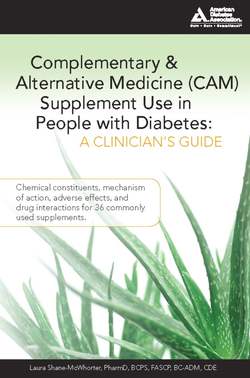Читать книгу Complementary and Alternative Medicine (CAM) Supplement Use in People with Diabetes: A Clinician's Guide - Laura Shane-McWhorter - Страница 10
На сайте Литреса книга снята с продажи.
TESTING CAM SUPPLEMENTS
ОглавлениеAn unfortunate situation is that most consumers believe that dietary supplements are evaluated for content and efficacy by an appropriate regulatory agency. The Harris Poll conducted 1,010 telephone interviews with a cross-section of adults in October 2002. The poll indicated that 68% of Americans believe the government requires herbal manufacturers to report potential dangers or adverse effects.50 Additionally, 58% believed that government agencies, such as the FDA, must approve herbal products before sale to the public, and 55% believed that manufacturers cannot make claims for supplement safety or efficacy without scientific evidence. Additionally, 13% believed that because supplements are “natural” they are safe.50 Actually, supplement manufacturers, not the FDA, are responsible for determination of safety and veracity of label claims. Most individuals do not realize that manufacturers do not have to tell the FDA or consumers what evidence they have about supplement safety or to back up their claims.51
Accuracy of labeling and ingredient purity may now be assessed by different dietary supplement testing programs. Unfortunately, efficacy is not evaluated. An example of an organization that has established certification programs for dietary supplements is the U.S. Pharmacopeia (USP). The USP program is called the Dietary Supplement Verification Program.52 The “USP-verified mark” on the label indicates the product ingredients are accurate and that the product is pure, will dissolve properly, and has been manufactured using good manufacturing practices. Clinicians should note that the USP website also lists manufacturers that have undergone the evaluation process.52
NSF International (formerly known as National Sanitation Foundation) also verifies products for label and content accuracy, checks purity and contaminants, and audits the manufacturing process for good manufacturing practice compliance.53 Consumer Lab also tests supplements.54 It tests certain classes for purity and accuracy of labeled ingredient content. All of these companies require that manufacturers pay for testing.55 The Consumers Union also tests certain products and reports findings in their publication, Consumer Reports.56 The National Nutritional Foods Association (NNFA) has also launched a good manufacturing practice program. Recently, NNFA changed its name to the Natural Products Association, and more information may be obtained at their website.57
